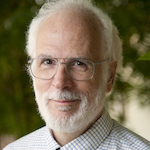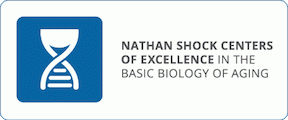
WEBINAR | Drugs That Slow Aging in Mice: the NIA Interventions Testing Program
Monday, October 22, 2018 | 2-3pm Eastern (11am-12pm Pacific)
Watch a recording of the webinar here.
As the NIA’s mouse Interventions Testing Program (ITP) enters its 16th year, Richard A. Miller, MD, PhD will present a concise summary of the program’s research design, its discoveries to date, studies now in progress, and plans for the future.
The free webinar, hosted by the Nathan Shock Centers Coordinating Center, will also provide information on biological resources that the ITP makes available for collaborating scientists, and advice on how to suggest a drug or nutritional intervention for testing by the three ITP laboratories.
The one-hour webinar will discuss:
1. What is the ITP study design?
2. What drugs have worked so far? How much do they increase healthy lifespan?
3. How do ITP results give new insights into the basic biology of aging?
4. How might ITP results lead, eventually, to advances in clinical and preventive medicine for people?
5. How can an investigator suggest new interventions for testing and request materials from mice involved in the ITP longevity experiments?

A Q&A, facilitated by Steven N. Austad, PhD—Co-Principal Investigator of the Nathan Shock Centers Coordinating Center and Director of the Nathan Shock Center at the University of Alabama Birmingham—will follow Dr. Miller’s presentation.
About the Presenter

Richard A. Miller, MD, PhD
Professor of Pathology and Director, Paul F. Glenn Center for Biology of Aging Research University of Michigan, Ann Arbor, MI
Dr. Miller’s research group focuses on problems in the basic biology of aging, mostly in mice, but sometimes using cell lines from long-lived birds, rodents, and primates. His laboratory is one of three ITP test sites, focusing on studies of drugs that slow aging and extend lifespan in mice.
Watch here.
Presented by the Nathan Shock Center Coordinating Center.
